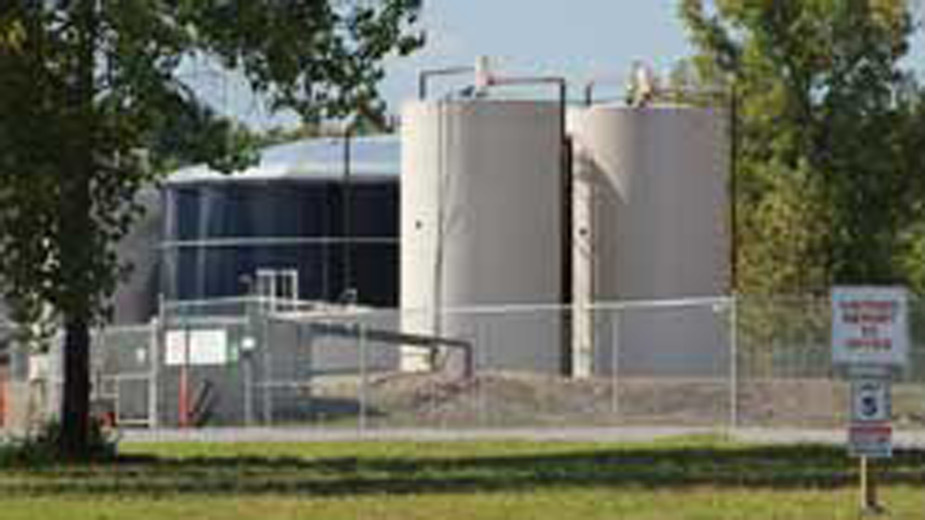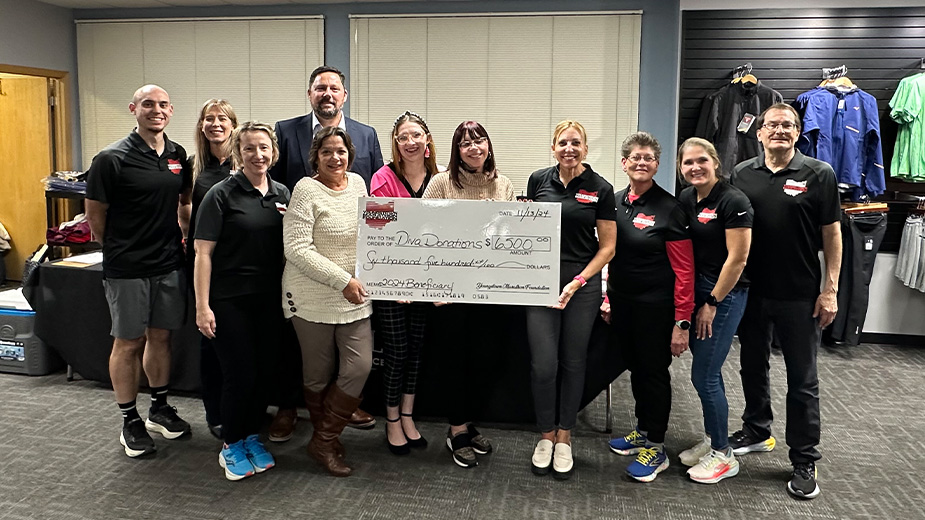Judge Clears Path for Injection Well to Reopen
NILES, Ohio – The owner of a wastewater injection well in Weathersfield Township shut down more than two years ago says he’s pleased with a court ruling last week that could clear the way for the disposal well to reopen.
Just when the well could resume operations remains to be seen.
“We’re very pleased with the judge’s decision,” said Ron Klingle, chairman of Avalon Holdings Corp. in Howland, the parent of American Water Management Services LLC, which owns two injection wells along state Route 169.
Klingle noted there is no timeline on when the well could begin accepting wastewater again. “I can’t predict that,” he said.
Judge Kimberly Cocroft ruled that the Ohio Department of Natural Resources’ decision to suspend operations at the well is “not in accordance with reason” and that there is “no factual basis” to keeping the well closed.
“There were two aspects to this,” Klingle told The Business Journal. “The first decision was that the ODNR director has the right to suspend permits. But, there has to be some reasonable cause. In this instance, there was nothing that happened that would’ve given him the slightest concern.”
In September 2014, ODNR’s Division of Oil and Gas chief Richard Simmers ordered American Water’s two wastewater injection wells shut down after seismic monitors detected small earthquakes measuring 1.7 and 2.1 in magnitude near the deeper well. Last year, ODNR lifted the suspension on the shallower well, but kept the shutdown order intact on the deeper well.
The company appealed the suspension order to the Oil and Gas Commission, which upheld the order. American Water Management Services then appealed to the Franklin County Court of Common Pleas, which dismissed the case over a procedural matter.
That ignited another round of appeals by American Water, first to the 10th District Court of Appeals in Franklin County, which instructed the common pleas court to remand the case to the Oil and Gas Commission once again. The commission incorporated its previous decision, and American Water appealed to the common pleas court again in June 2016.
American Water argued that the level of seismic activity detected near the well amounted to “background” tremors that occur every day throughout Ohio and are not felt by the public. “That’s what was used to suspend our operations,” Klingle said. Thus, there was no scientific evidence to support the continued shutdown of the well.
The court also found that American Water had complied with all applicable laws and regulations, and was not in violation of its permit.
American Water Management argued that the AWMS #2 well is in stark contrast to D&L Energy’s Northstar #1 well in Youngstown, which was tied to a 4.0 magnitude earthquake that shook the Mahoning Valley on Dec. 31, 2011. After that temblor, ODNR shut the well down.
In the D&L case, not only was the seismicity much higher, the operator was found to have violated its permit and other regulations governing the operation of injection wells. Such was not the case with American Water Management Services, the decision says.
Plus, the court found inconsistencies in how ODNR has worked with other wells in Ohio that have triggered tremors. According to court documents, ODNR worked with operators of the Long Run well in Washington County to reduce seismicity by reducing the volume of drilling wastewater inducted into the well and by lowering pressure levels.
However, the court determined that ODNR “has done nothing to evaluate the AWMS # 2 well” and that it has “arbitrarily refused” to work with American Water Management to develop and implement a site-specific plan to restart operations there.
Richard Simmers, ODNR’s oil and gas division chief, earlier testified that the agency hadn’t addressed the AWMS issue because it was waiting to complete a statewide plan and policy that would guide injection wells into the future, documents show. Yet there was no time frame as to when any statewide plan would be completed.
“The division’s continual refusal to work towards a resolution with the operator of AWMS # 2 is arbitrary, in light of the fact that there is no evidence that appellant has violated its permit, or any applicable law or regulations,” the court said.
Judge Cocroft decreed that each party submit to the court a plan to restart the well within 30 days that would initially limit the amount of wastewater injected into the well and pressure levels. Those levels would gradually increase while seismicity is monitored at the site, according to the ruling.
Klingle said American Water Management submitted a restart plan to ODNR based on the Long Run well two years ago.
“We have a plan that takes all this information into consideration in order to make everybody feel comfortable and safe,” Klingle said. “That’s what the plan needs to accomplish and that’s what everybody wants.”
Copyright 2024 The Business Journal, Youngstown, Ohio.



